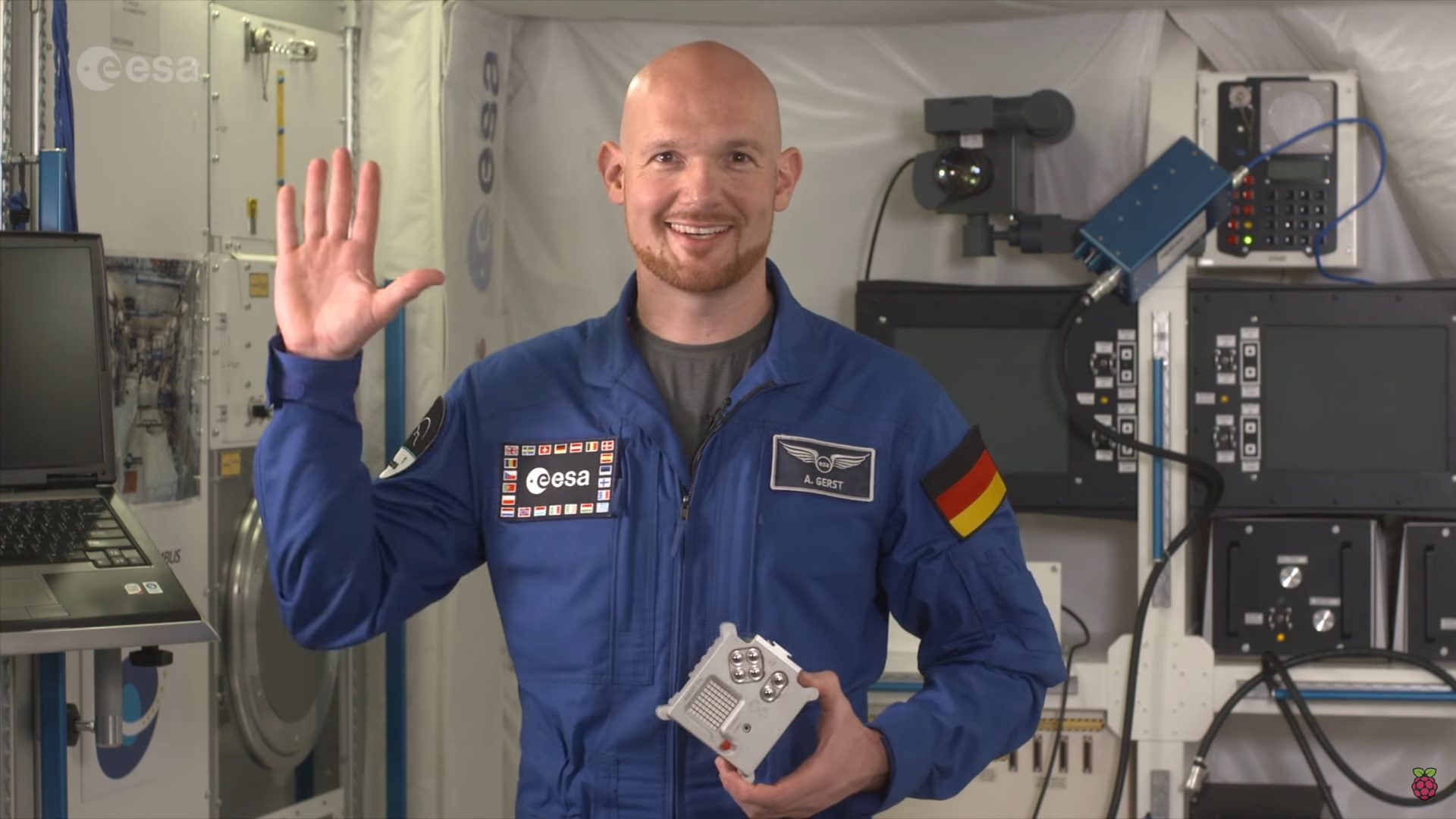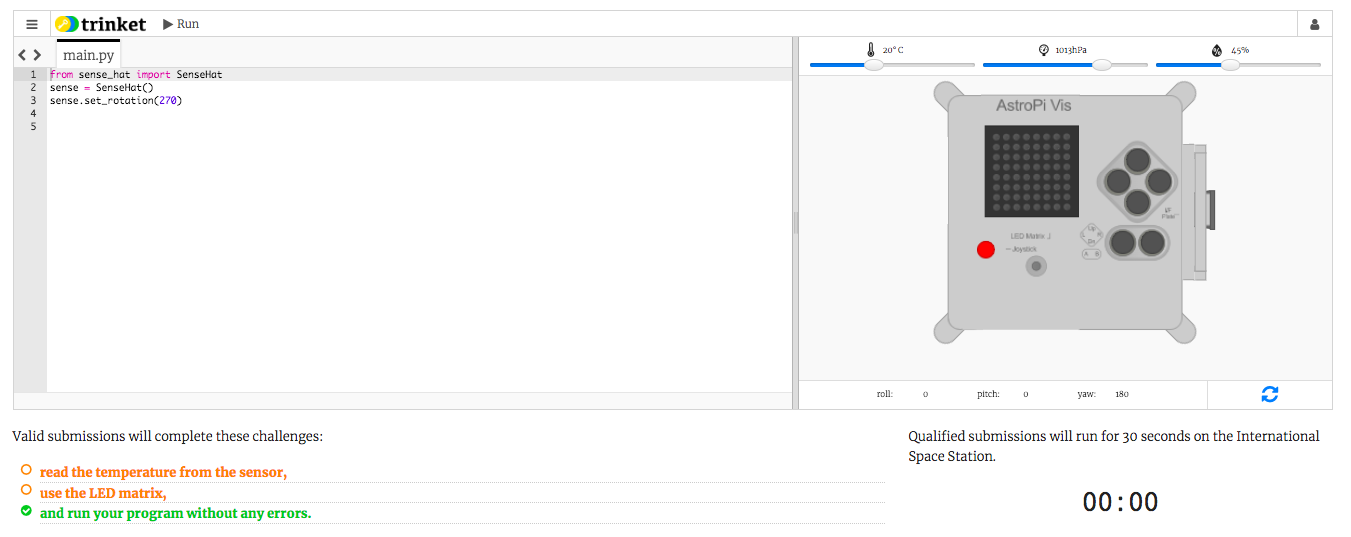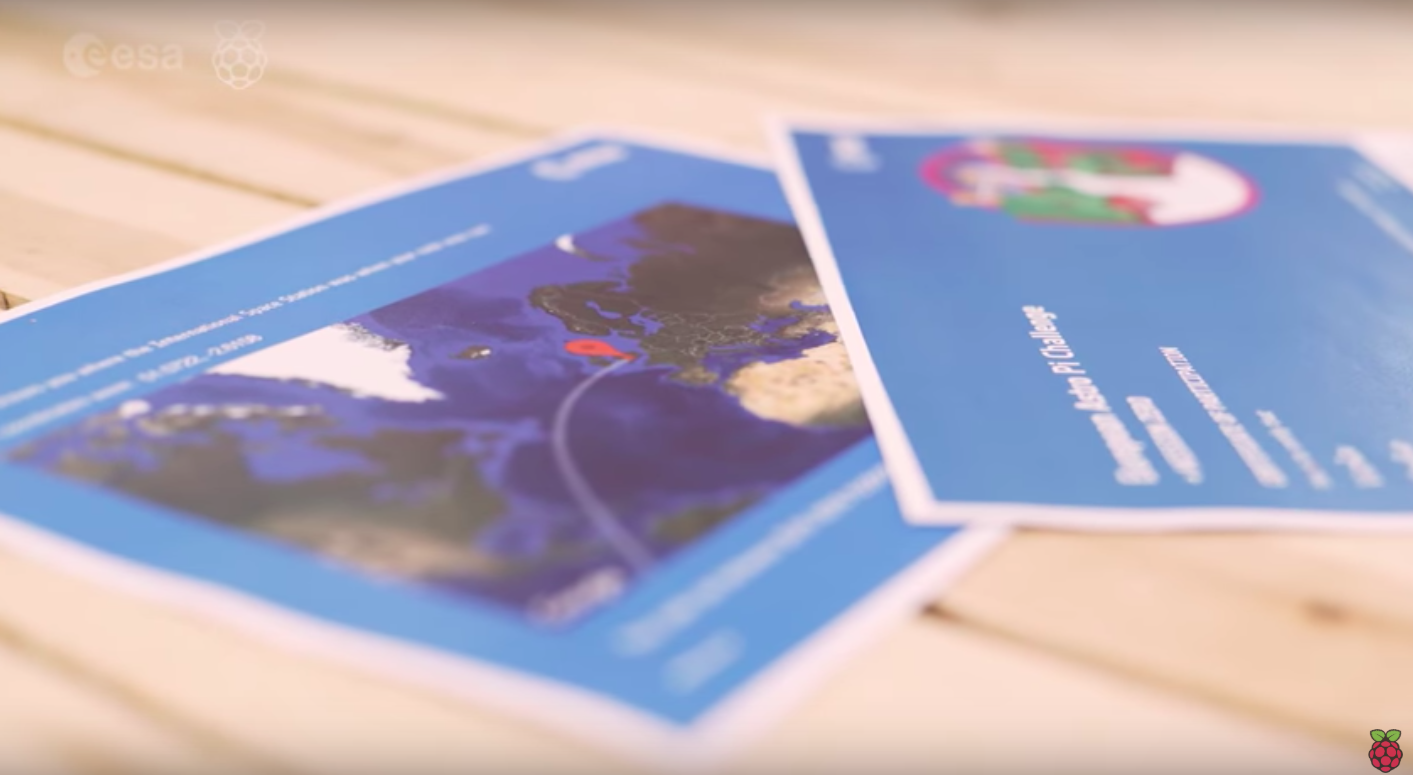Today is the official launch day of Astro Pi Mission Zero, part of the 2018–2019 European Astro Pi Challenge, an ESA Education programme run in collaboration with us at Raspberry Pi. In this challenge, students and young people get the chance to have their computer programs run in space on the International Space Station!

Text an astronaut!
Students and young people will have until 20 March 2019 to from teams and write a simple program to display their personal message to the astronauts onboard. The Mission Zero activity can be completed in a couple of hours with just a computer and an internet connection. You don’t need any special equipment or prior coding skills, and all participants that follow the guidelines are guaranteed to have their programs run in space.
Translations
This year, to help many more people take part in their native language, we have translated the Mission Zero resource, guidelines, and web page into 19 different languages! Head to our languages section to find your version of Mission Zero.
Take part in Astro Pi Mission Zero
To participate, the teams’ teacher or mentor needs to register for a classroom code that will let students submit their programs. Teams then follow our online resource to write their programs using the browser-based Trinket emulator: with just a few lines of Python, your team will create a program for one of the two Astro Pi computers aboard the ISS!

Each team’s program will run for 30 seconds aboard the Space Station, visible for all the astronauts including this year’s challenge ambassadors: ESA astronaut and ISS Commander Alexander Gerst and CSA astronaut David Saint-Jacques.
Astro Pi returns for a new 2018/19 challenge!
Ever wanted to run your own experiment in space? Then you’re in luck! ESA Education, in collaboration with the Raspberry Pi Foundation, is pleased to announce the launch of the 2018/2019 European Astro Pi Challenge!
Every team that submits a valid Mission Zero entry will also receive a certificate showing the flight path of the ISS above Earth at the exact time their code ran!

The challenge is open to teams of students and young people who are aged 14 years or younger (at the time of submission) and from ESA Member or Associate Member States*. The teams must have at least two and no more than four members, and they must be supervised by an adult teacher or mentor.
Have fun, and say hi to the astronauts from us!
About the European Astro Pi Challenge
The European Astro Pi Challenge is an ESA Education project run in collaboration with the Raspberry Pi Foundation. It offers students and young people the amazing opportunity to conduct scientific investigations in space by writing computer programs that run on Raspberry Pi computers on board the International Space Station (ISS). The Astro Pi Challenge is divided into two separate missions with different levels of complexity: Mission Zero (the basic mission), and Mission Space Lab (one step further). This year’s Mission Space Lab is closing for applications at the end of October. Click here for more information about it.
*ESA Member States in 2018:
Austria, Belgium, Czech Republic, Denmark, Estonia, Finland, France, Germany, Greece, Hungary, Ireland, Italy, Luxembourg, The Netherlands, Norway, Poland, Portugal, Romania, Spain, Sweden, Switzerland, United Kingdom.
ESA Associate States in 2018: Canada, Slovenia
In the framework of the current collaboration agreement between ESA and the Republic of Malta, teams from Malta can also participate in the European Astro Pi Challenge. ESA will also accept entries from primary or secondary schools located outside an ESA Member or Associate State only if such schools are officially authorised and/or certified by the official Education authorities of an ESA Member or Associate State (for instance, French school outside Europe officially recognised by the French Ministry of Education or delegated authority).
Website: LINK

